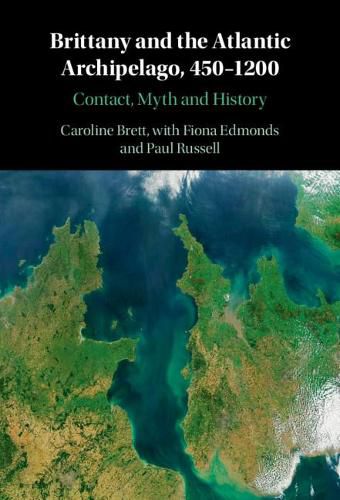Readings Newsletter
Become a Readings Member to make your shopping experience even easier.
Sign in or sign up for free!
You’re not far away from qualifying for FREE standard shipping within Australia
You’ve qualified for FREE standard shipping within Australia
The cart is loading…






How did Brittany get its name and its British-Celtic language in the centuries after the collapse of the Western Roman Empire? Beginning in the ninth century, scholars have proposed a succession of theories about Breton origins, influenced by the changing relationships between Brittany, its Continental neighbours, and the ‘Atlantic Archipelago’ during and after the Viking age and the Norman Conquest. However, due to limited records, the history of medieval Brittany remains a relatively neglected area of research. In this new volume, the authors draw on specialised research in the history of language and literature, archaeology, and the cult of saints, to tease apart the layers of myth and historical record. Brittany retained a distinctive character within the typical ‘medieval’ forces of kingship, lordship, and ecclesiastical hierarchy. The early history of Brittany is richly fascinating, and this new investigation offers a fresh perspective on the region and early medieval Europe in general.
$9.00 standard shipping within Australia
FREE standard shipping within Australia for orders over $100.00
Express & International shipping calculated at checkout
How did Brittany get its name and its British-Celtic language in the centuries after the collapse of the Western Roman Empire? Beginning in the ninth century, scholars have proposed a succession of theories about Breton origins, influenced by the changing relationships between Brittany, its Continental neighbours, and the ‘Atlantic Archipelago’ during and after the Viking age and the Norman Conquest. However, due to limited records, the history of medieval Brittany remains a relatively neglected area of research. In this new volume, the authors draw on specialised research in the history of language and literature, archaeology, and the cult of saints, to tease apart the layers of myth and historical record. Brittany retained a distinctive character within the typical ‘medieval’ forces of kingship, lordship, and ecclesiastical hierarchy. The early history of Brittany is richly fascinating, and this new investigation offers a fresh perspective on the region and early medieval Europe in general.